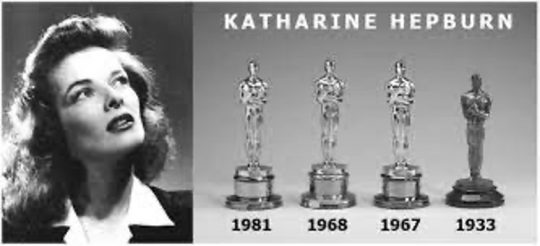Widgetized Section
Go to Admin » Appearance » Widgets » and move Gabfire Widget: Social into that MastheadOverlay zone
Developing as an Ethical Administrator: Individuation not Imitation
The views expressed are those of the author and do not necessarily reflect the views of ASPA as an organization.
By Richard M. Jacobs
October 1, 2021
When Katherine Hepburn—the first actress to win an Academy Award—was asked what contributed to her success, the Hollywood celebrity quipped “Be the best you can be,” [italics added].

ASPA’s Code of Ethics concurs, challenging public administrators to, “Advance professional excellence,” stating that this requires, “Strengthen[ing] personal capabilities to act competently and ethically and encourage the professional development of others,” [emphasis added].
Many leaders strive to exhibit excellence by seeking to be the protagonist-hero of their leadership narratives. Working to maintain a positive self-image, they assiduously avoid conduct that would generate unflattering comparisons with peers who exhibit character flaws.
Counter-intuitively, Derrick Rucker’s research indicates that those flaws can assist leaders to explore their character flaws and develop ethically.
Study flawed characters, not exemplars.
Accepting the fact of one’s imperfections, Rucker recommends reflecting upon fictional villains who reveal commonly shared character flaws. Of this approach, Rucker’s research assistant Rebecca Krause observes, “Villains provide an interesting window into learning about parts of the self that we don’t normally explore.”
The villain of Michael Dobbs’ BBC, “House of Cards,” trilogy, Francis Urquhart, comes to mind.
Urquhart was the very best at being what he wanted to be and desired more than life itself: To reign as Britain’s Prime Minister longer than his immediate predecessor, Margaret Thatcher, who Urquhart detested.
Unaware he was attributing his character flaws to, “Maggie, you poor fool,” this terribly flawed, truly despicable, and undoubtedly evil Prime Minister, “FU,”—his nickname invoked by friend and foe alike—is a past master in the art of plausible deniability. Yet, Urquhart is both amiable and endearing, regularly inviting his audience to know what he’s thinking and observe from the sidelines as his Machiavellian intrigues unfold. In a perfectly timed Shakespearean stage whisper always accompanied by genial smile, Urquhart asks, “Let’s take a little stick about, shall we?”
At the time, LA Times television criticHoward Rosenberg observed: “Francis Urquhart makes Richard Nixon look like a guileless wimp.”
Rucker suggests the allure of, “Our dark doppelgangers,” is very powerful yet provides an invitation to engage in a form of self-exploration that otherwise would be denied. He notes, “A lot of people who are actually good human beings, who would never want to be bad in the real world, may see fantasy as a means to entertain it”—without the real-world consequences.
A counterintuitive approach to developing ethically
Hopefully no public administrator desires to embody such heinously unethical conduct and works assiduously to avoid being a “Urquhart.” Yet, every public administrator is imperfect and when others attribute to and seize upon one’s character flaws, self-image can be weakened and rendered fragile.
Embracing the shadow archetype lurking about in the unconscious, psychoanalyst Carl Gustav Jung argued it has the power to liberate people from its power. Then, they can begin the process of individuating themselves to become the best they can be.
Fictional villains—like Francis Urquhart—make it possible to explore and bring to conscious awareness these flaws and what they could make others feel, think and fear. In the privacy of a safe social space without being judged by others, this exploration needn’t provoke fear. For example, accompanying Urquhart engaging in his perfidious escapades, public administrators can contemplate how they also can be unscrupulous and repulsive as well as amiable and endearing.
“Similarity provokes interest,” Rucker notes, and mindful that, “Being like,” someone isn’t, “Being that person,” the attraction fictional villains provide can provide public administrators an opportunity to develop ethically.
Developing ethically
Hepburn’s rejoinder—“Be the best you can be,”—reminds public administrators that while some peers may be exemplars of professional practice—possessing expertise in the knowledge, skills, abilities and attitudes that others emulate—being one’s best self is achieved through individuation, not imitation.
Honestly acknowledging that one isn’t always the best one can be and knowing one can be better, developing ethically unfolds minute by minute, interaction by interaction and day by day. Striving to do one’s best each and examining one’s character flaws though the lens provided by fictional villains will yield data evidencing how one is becoming one’s best self, not being like someone else.
More importantly, engaging in this exercise will lead to immense personal and professional satisfaction as a non-fictional exemplar of ethical practice who leads others to be the best they can be.
Author: Richard M. Jacobs is a Professor of Public Administration at Villanova University, Immediate Past Chair of the ASPA Section on Ethics and Integrity in Governance and former Acquisitions Editor for Public Integrity. His research interests include organization theory, leadership ethics, ethical competence, and teaching and learning in public administration. Jacobs may be contacted at: [email protected]


Lym
October 4, 2021 at 2:59 pm
Very nice. This was timely for me, and reassured me that it’s ok to be me in all my (what others say) quirkiness because I most definitely am successful in developing others and helping them to be leaders regardless of their position!